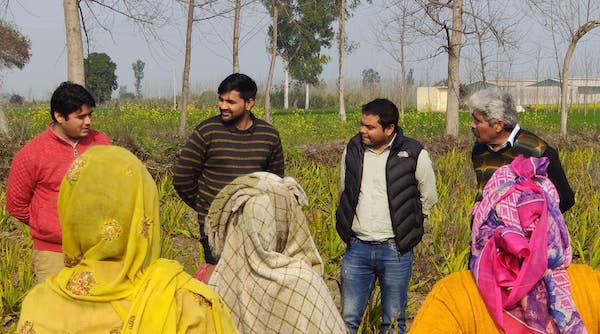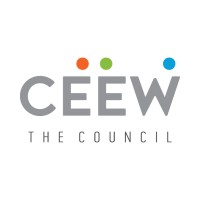
A year of Powering Livelihoods: 5 lessons for scaling up DRE for productive uses

Exactly a year ago, CEEW and Villgro launched Powering Livelihoods, an ambitious USD 3 million initiative to mainstream clean energy solutions in rural livelihoods. In a challenging year defined by the COVID-19 pandemic, Powering Livelihoods has:
- supported an upcoming policy on decentralised renewable energy (DRE) for livelihoods by the Ministry of New and Renewable Energy (MNRE);
- enabled ~4,700 livelihoods (84 per cent women) through clean energy-powered solutions;
- supported ~4,000 new clean energy-based livelihoods installations, such as silk reeling machines, hydroponic green fodder grow units and multi-purpose food processors;
- helped increase the cumulative annual revenue of our cohort enterprises by 31 per cent;
- and unlocked two commercial funding deals, with two more in advanced-stage discussions.
While we are proud of these outcomes, we feel the lessons we learned behind the scenes are equally valuable. So, to mark our first anniversary, here are five insights that could help develop the DRE-for-productive-use sector—not just in India but across the Global South.
1. Tough times can have silver linings: quickly identify and capitalise on them
Policymakers, financiers, and investors have limited awareness of, and limited confidence in,the viability of decentralised renewable energy (DRE)-powered, energy-efficient appliances for livelihoods. At Powering Livelihoods, we understand that engaging with such stakeholders in a timely manner, with adequate evidence, and at a meaningful scale is important for building their confidence.
The countrywide reverse migration during last year’s COVID-19 lockdown gave us an opportunity to engage with ministries looking to generate additional livelihoods in rural areas. Our work with the MNRE has led to an upcoming national policy for the development and promotion of DRE-based livelihood appliances.
2. Bespoke assistance is imperative for building resilient enterprises
Even at a similar stage of commercialisation, different enterprises face different kinds of challenges due to the wide variety in their teams’ abilities, target customer segments, or market contexts. As a result, standardised technical support does not work. Keeping this in mind, we extended only bespoke, need-based support to our cohort enterprises.
For instance, when Dharambir Food Processing was struggling with low production capacity, the programme hired a manufacturing consultant who helped the company triple its capacity without additional capital or labour. Whereas to reduce Resham Sutra’s dependence on government sales, we supported the establishment of a Rural Experience Centre (located in Bastar, Chhattisgarh) that employs local women in a small silk yarn production unit. The centre also serves as a demonstration site, sales channel, and training hub, generating additional non-government sales for the enterprise.
3. Gender mainstreaming in SMEs needs explicit, targeted support
Gender-inclusive strategies make business sense. But very few firms are aware of them, and even fewer are willing to try them. This is especially true of small enterprises focused on surviving the pandemic
Powering Livelihoods helps its partner enterprises test strategies for boosting revenue by reaching more women customers. To do this, we leverage tools like gender-focused financial support, focused technical assistance, and partnerships with women-focused organisations. For example, Hydrogreens is developing a gender-responsive SOP for its proprietary hydroponics-based fodder stations to increase their utilisation by women and improve user experience.
Enterprises need to adopt a range of activities to reach more women customers — from developing women-friendly products to facilitating end-user financing — as it is harder for women to access credit despite lower default rates. One of the cohort enterprises, Greenwear, is creating a targeted digital marketing strategy to improve brand recognition among women customers.
4. Unlocking commercial capital for early-stage markets is hard, but essential
Investors and financiers perceive a high degree of risk in supporting companies (or products) with limited track records. Consequently, enterprises in the productive-use-DRE sector struggle to unlock the capital support they need to scale up their activity and develop that track record.
To help halt this vicious cycle, we are leveraging philanthropic funds to unlock commercial capital for our cohort enterprises. Devidayal Solar and Ashv Finance recently signed a deal worth INR 1 crore (USD 135,000) for end-user financing with first loss default guarantee (FLDG) support from Powering Livelihoods. A guarantee to cover defaults might appear costly, but it is essential to help lenders build their experience with the product and targeted customer segment. Only by building financiers’ confidence and a track record can we move towards a commercially viable sector.
5. Each productive use category needs a customised go-to-market strategy
Most DRE-based livelihood appliances either have multiple use cases or multiple market segments. The companies that make them stretch their sales effort across different customer segments, when they should focus instead on cracking large, easy ones first. Further, given the diversity of customer segments out there, every company needs a customised go-to-market strategy.
For example, after coming into the programme, micro pumps manufacturer, Khethworks, evolved its sales strategy from B2C to B2B to scale its sales faster. Not its B2B partnerships with agri-equipment and last-mile distribution companies would help it scale its sales. Dharambir Food Processing, on the other hand, has realised that positioning its product as a multi-purpose food processor is ineffective when customers only plan to enter a single value chain; positioning the product differently for different value chains is a smarter marketing approach.
Our journey continues
Our first anniversary is a milestone and not a destination. We are extending results-based financial support to even more companies to further expand the reach of DRE livelihood solutions. We are also exploring partnerships with ecosystem organisations such as 1bridge, SEWA, and Jaikisan to scale commercial deployments. If you are an organisation with a large customer/member base that could benefit from DRE-livelihood solutions, we would love to hear from you and explore a partnership. Please write to us at info@poweringlivelihoods.org


